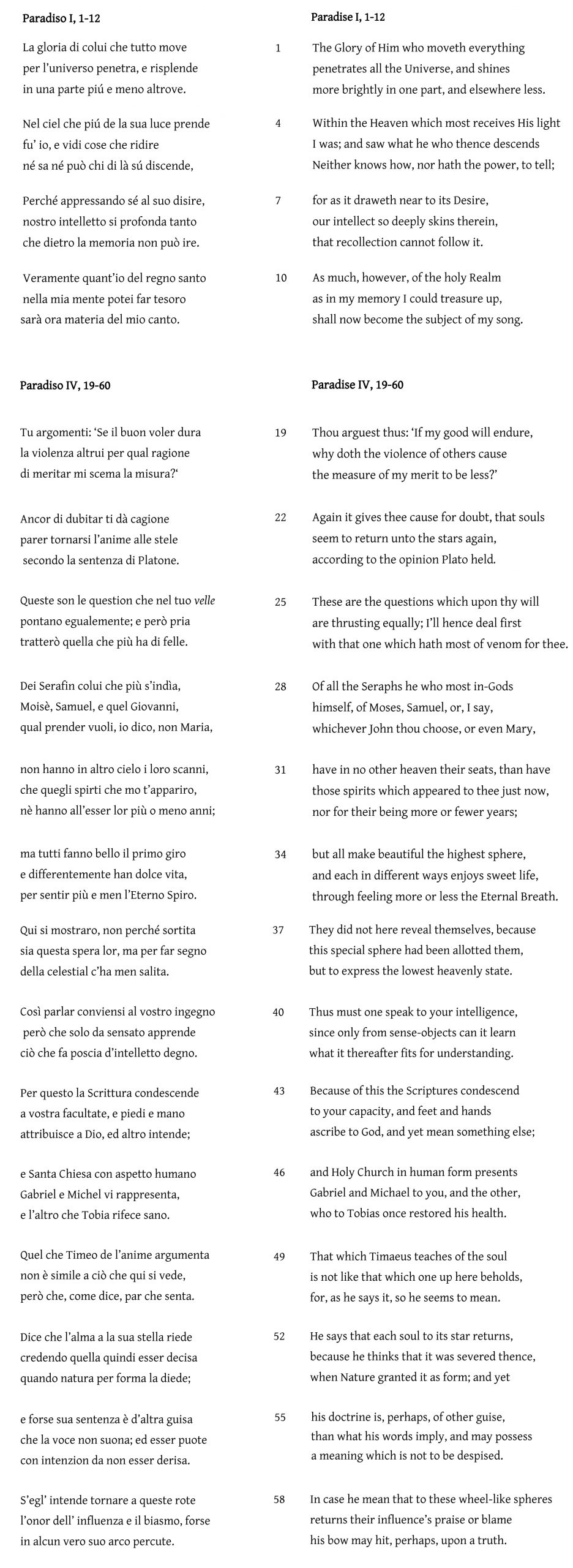Dante
Dante Alighieri
(c. 1265–1321)
Dante is the national poet of Italy and, thanks to his pioneering use of the vernacular for literary composition, considered to be the father of the Italian language. His Divine Comedy charts the trajectory from the caverns of Hell via Purgatory to Paradise, and in the process provides a spectacular panorama of the medieval world view and its understanding of the destiny of man in the face of God.
The two passages from the Paradise section of the Divine Comedy cited below are discussed in Cristina D’Ancona’s chapter ‘ “Nostro intelletto si profunda tanto”: The Philosophical Background of Dante’s Paradisio I, 1–12 and IV, 22–60’ (FoI, 255-75). The issues they raise are key concerns of Platonic and Neoplatonic philosophy and as such surface repeatedly in the chapters of the Faces of the Infinite volume. At their heart is the inadequacy of human memory and, with it, of human language and discursive thinking, to comprehend the intelligible realm in which alone true reality and salvation reside. How to grasp and attain that supreme goal despite such inherent limitation is, from this philosophical perspective, the greatest challenge of the human spirit. D’Ancona’s discussion of Dante provides insight into one poet’s attempt to wrestle with it by recourse to the intellectual tradition of which he is the heir.

For searchable text – click here
Source
Langdon, C. (1921), The Divine Comedy of Dante Alighieri. The Italian Text with a Translation in English Blank Verse and a Commentary (London-Oxford, Harvard University Press).